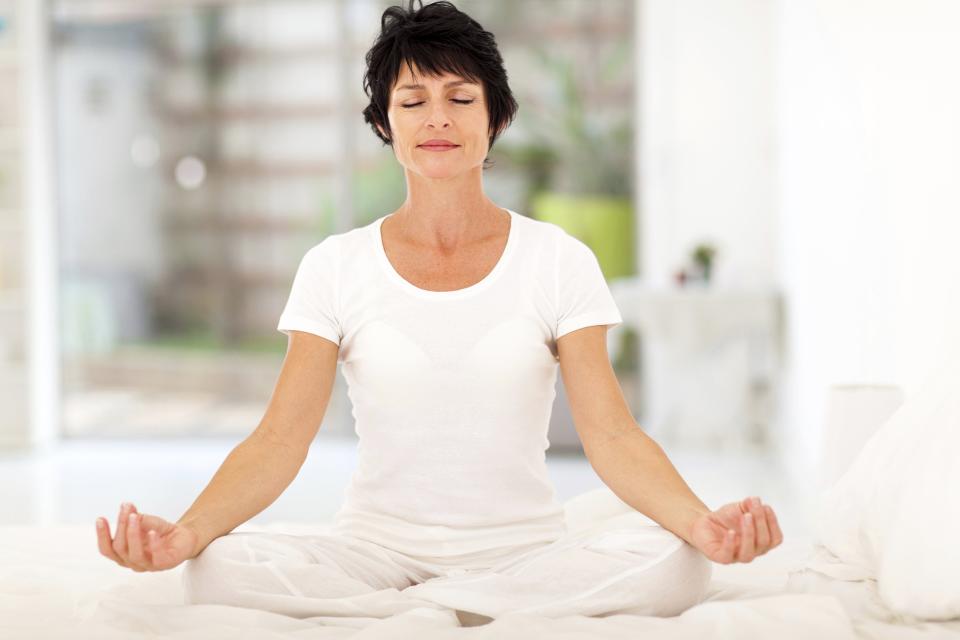How alternative, holistic therapies can help those with neurodegenerative disorders like Parkinson's
When Beth Elgort’s husband, Steve, was diagnosed with Parkinson’s disease around a dozen years ago, she made it her mission to optimize his quality of life while the couple adjusted to their new normal.
Believing that South Florida’s tropical climate would be more conducive to helping him be active, the couple relocated from New York to Palm Beach Gardens.
In addition to seeking the opinions of medical professionals, Beth, 67 — a longtime mental health counselor, social worker and nutrition expert — also did copious research on her own about alternative and holistic therapies.
The Elgorts found that by keeping Steve, 77, physically active and creatively engaged, the worst symptoms of the neurodegenerative disease could be somewhat mitigated.
More local research: FIU teaching computers to diagnose strokes based on data from thousands of patients
More Health Matters: The McDonald's diet? How one man has lost 40-plus pounds eating only fast food
Health priorities: We're in this together: Fighting the loneliness epidemic
And their success in combatting Steve’s disease progression led the couple to want to share what they’d learned with others who were living with Parkinson’s.
“After years of social work practice, it was only natural to be a resource for my husband,” Beth Elgort said. “This grew into a desire to also advocate for others who have neurodegenerative diseases. My dream was to create a center that is a nurturing, safe environment where people can socialize and feel comfortable while taking classes to improve their neuroplasticity and movement.”
From helping husband with Parkinson's to helping many
So, in February 2020, just before the world went into pandemic lockdown, Beth realized a years-long dream: She founded the nonprofit Mind, Music and Movement Foundation for Neurological Disorders.
During that first year, most of the entity’s offerings were virtual. But as time passed and restrictions eased, they were able to begin offering in-person programming at Tropical Sands Christian Church (2726 Burns Road in Palm Beach Gardens).
Among the offerings for Mind, Music and Movement clients:
The Voices of Parkinson’s Chorus
Movement
Yoga and meditation
Art
Dance for fluidity
Nutritional counseling
Support services
West Palm Beach neurologist Dr. Arif Dalvi, director of the Comprehensive Movement Disorders Program at Palm Beach Neuroscience Institute and a member of Mind, Music and Movement’s medical advisory committee, is a proponent of taking a multi-pronged approach to attacking neurodegenerative diseases.
“Neurological disorders like Parkinson's disease are complex conditions that develop due to the death of the brain cells that produce dopamine,” Dalvi said.
When medications are needed and potentially effective, Dalvi will certainly prescribe them. But he’s quick to add that “for someone with a neurological disorder, a holistic approach is needed — one that combines attention to diet, lifestyle, and supportive therapies, including physical and speech therapy.”
Collaboration with Florida Atlantic University
As effective as Mind, Music and Movement has been at providing the community’s neurodegenerative disease sufferers with classes and advocacy, Beth wanted to reach even more people.
So last month the organization announced a new partnership with Florida Atlantic University’s Stiles-Nicholson Brain Institute and Schmidt College of Medicine.
“I have seen, firsthand, how alternative therapies help people thrive and possibly delay the progression of neurodegenerative diseases,” Elgort said. “This next step with FAU will help us reach even more people with our programming and events. And we are excited to participate in the Palm Beach County NeuroArts Collaborative with Palm Health Foundation and others.”
Elgort explained that plans for the collaboration between her organization and FAU include integrating alternative therapy programs into FAU’s Schmidt College of Medicine to further provide resources and motivation for people to live well with neurodegenerative diseases. Early programming will include FAU High School STEM students volunteering community service hours to assist with their daily classes. The clients participating will also have access to be part of current research studies related to neurodegenerative diseases at FAU.

“We are excited to partner with Mind, Music and Movement to expand the programs and services we provide to our students and our community to include the arts such as dance and music to enhance quality of life for those with Parkinson’s Disease,“ said Dr. Julie G. Pilitsis, dean of the Charles E. Schmidt College of Medicine and vice president for Medical Affairs at FAU. “This collaboration will help us to advance evidence-based clinical studies on alternative methods to improve movement, mood and cognition in those affected by neurodegenerative disorders, especially Parkinson’s disease.”
“Our partnership with Mind, Music and Movement will enable us to combine our expertise and resources to provide our community with the latest advances and tools for brain health and will help to propel the arts in neuroscience in this region,” noted Dr. Randy D. Blakely, neuroscience professor of biomedical science in the FAU Schmidt College of Medicine.
“In particular, the programs will provide an opportunity for faculty and trainees of the Institute’s David and Lynn Nicholson Center for Neurodegenerative Disease Research to engage closely with members of the community whose disorders they’re striving to understand and ultimately cure,” Blakely said.
Mind, Music and Movement offers a variety of pricing options for its offerings (some of which are virtual) — ranging from an unlimited monthly membership to group bundles to individual classes.
And for those who simply cannot afford the classes, Beth says “we believe wellness should be accessible to everyone no matter their financial status. If you’re unable to pay for classes, please contact us anyway because you may qualify for a scholarship.”
To learn more about Mind, Music and Movement Foundation for Neurological Disorders, call 561-336-0902 or visit m3f.org.
This article originally appeared on Palm Beach Post: FAU teams with Gardens nonprofit to help people with Parkinson's

